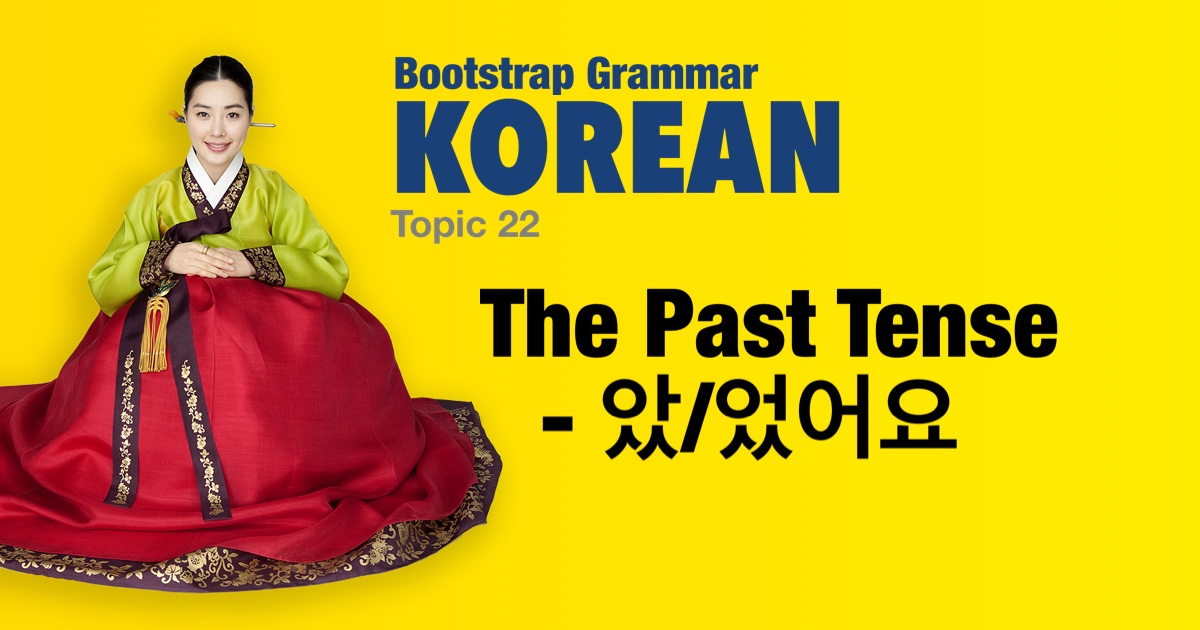Korean grammar - The Past Tense - 았/었어요 |
|||
|
|||
Pattern: Verb stem + 았어요/었어요 The past tense of a verb is formed by attaching either 았어요 or 었어요 to the Verb stem: • If the final vowel in the Verb stem isㅏ,ㅑ,ㅗ or ㅛ we use 았어요. • If final vowel is one of the other vowels, we use 었어요. If the final letter of the Verb stem is a vowel then we merge contiguous vowels: -- So for example 가 + 았어요 ⇒ 갔어요, 오 + 았다 => 왔다, 끼 + 었어요 ⇒ 꼈어요. • If the Verb stem's final letter is ㅂ then remove the ㅂ and add 웠어요. -- So for example 춥다 (to be cold) ⇒ 추웠어요 (was cold). |
| Examples: | |
|
시험을 못 봤어요.
(I) did not pass the exam.
|
|
|
미나가 스키를 탔어요.
Mina skied.
|
|
|
어머니는 가게에 갔어요.
(My) mother went to the store.
|
|
|
그는 언제 왔어요?
When did he come?
|
|
|
그녀는 한국어를 어떻게 배웠어요?
How did she learn Korean?
|
|
|
장갑을 꼈어요.
(I) put on gloves.
|
|
|
민준이는 불을 못 켰어요.
Minjun couldn't turn on the light.
|
|
|
어제는 날씨가 좋았어요.
Yesterday the weather was nice.
|
|
|
우리는 공원에 앉았어요.
We sat in the park.
|
|
|
케이크를 못 만들었어요.
I could not make cake.
|
|
|
친구가 죽었어요.
A friend died.
|
|
|
소원은 밥을 못 먹었어요.
Suwon could not eat the rice.
|
|
|
저는 책을 읽었어요.
I read (past tense) a book.
|
|
|
경찰관은 달렸어요.
The policeman ran.
|
|
|
건물이 무너졌어요.
A building collapsed.
|
|
|
병이 깨졌어요.
A bottle is broken.
|
|
|
물이 차가웠어요.
The water was cold (to the touch).
|
|
|
지난겨울은 추웠어요.
Last winter was cold.
|
|
|
가방은 무거웠어요.
The bag was heavy.
|
|
 |
|




